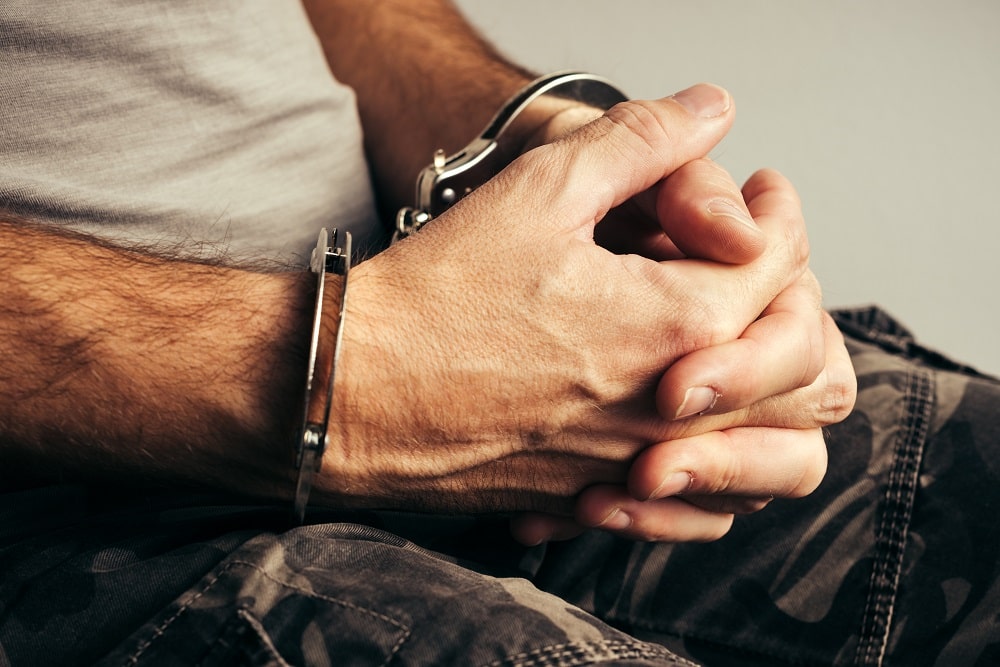Los Angeles Manslaughter Lawyer
What Is Manslaughter?
Manslaughter is a legal term that is used to describe a crime that involves killing a human being without malice or planning but the act does not amount to murder. There is no intent to kill or seriously harm. A manslaughter charge can range from killing in the heat of passion to texting and driving.
What Is the Difference between Manslaughter and Murder?
When looking at manslaughter vs. murder, the law considers two things: degree and intent.
Both are homicides, which is a legal term to describe the killing of an individual by an individual. Homicide can be a legal killing, such as a soldier in battle, it can be an accidental killing such as a fatal accident resulting from distracted driving, or it can be intentional and illegal.
An act of murder is committed with “malice aforethought.” That is a legal term that describes an unjustified killing. A murder charge, which is broken down into degrees, usually means that the person meant to kill the other person, or they were so reckless or neglectful that the act is classified as murder.
A manslaughter conviction can have a serious impact on your life. A vehicular manslaughter charge or DUI manslaughter charge tends to carry a great deal of social stigma. However, the penalty is not as severe as murder, which is an advantage.
If you have a pending manslaughter case due to a voluntary manslaughter charge, involuntary manslaughter charge, or vehicular manslaughter charge, understand, the very nature of the offenses and legal process are very complex. You need experienced, knowledgeable legal representation. It is advisable that you retain a manslaughter lawyer.
Types of Manslaughter Charges in California
Manslaughter is not broken down into degrees but is classified as voluntary manslaughter, involuntary manslaughter, and vehicular manslaughter. Within that, there are nuances such as aggravated manslaughter.
Under California Penal Code 187, there are various factors that can aggravate a manslaughter or murder charge. Callous or neglectful behavior on the part of the person who is accused of the crime can raise the stakes, making the charge “aggravated” manslaughter or murder.
A manslaughter charge in California is a serious offense. There is a fine line between manslaughter and murder which can have a tremendous impact on your sentence. An experienced Los Angeles manslaughter lawyer can navigate the court system and often get charges reduced or even dropped. This is not a traffic court. You need solid legal representation.
What is Involuntary Manslaughter?
The California Penal Code 192(b) defines involuntary manslaughter as “the unlawful killing of a human being without malice…in the commission of an unlawful act, not amounting to a felony, or in the commission of a lawful act which might produce death, in an unlawful manner, or without due caution and circumspection.”
This means that a person caused the death of another person, but the act was not premeditated or intentional. The key here is that the death occurred due to the defendant’s dangerous or unlawful behavior, or the defendant did not perform a legal duty, such as a caregiver, doctor, or parent, that they owed to the person and the failure caused their death.
- For instance, the defendant was showing off to his friends, waving his new gun around. The gun accidentally fired, hitting one of his friends, killing him. He was guilty of violating California’s “brandishing a weapon law” (Penal Code 417 PC) and the death occurred during the commission of that crime.
Legal Defenses
An experienced manslaughter attorney is invaluable in helping the defendant establish a valid defense against an involuntary manslaughter charge.
California law allows for several defenses against involuntary manslaughter:
- It was an accident and not the result of the defendant committing a crime
- It was self-defense or in the defense of someone else
- There is not sufficient evidence to convict the defendant
- The defendant was falsely accused
What Must the Prosecutor Prove
In order to prove an involuntary manslaughter charge, the burden of proof is on the prosecutor to establish that the defendant:
- Committed an act that is typically legal, but in an illegal manner or committed a crime
- Committed the act or crime with criminal negligence
- Is responsible for the death of another person due to their commission of the act or crime
In a case where the defendant had a legal duty to a person and failed to perform it, the prosecutor must show that the defendant:
- Had a legal duty to the person who died
- Did not perform that legal duty
- Is criminally negligent because they did not perform that legal duty
- Is responsible for the death of the person because they did not perform that legal duty
Penalties and Sentencing in California
Under California law, involuntary manslaughter is a felony. Penalties may include:
- A strike under California’s Three Strikes Law
- Minimum two years in jail with a maximum of four years in prison
- Minimum $10,000 fine
- Victim restitution
- Probation
- Labor or community service
- Revocation of gun ownership privileges
- Court-ordered counseling
- Other penalties or conditions that the court deems appropriate
What is Voluntary Manslaughter?
The California Penal Code 192(b) defines voluntary manslaughter as “the unlawful killing of a human being without malice…upon sudden quarrel or heat of passion.”
This means that a person caused the death of another person, but it was in the heat of the moment. There was no forethought or planning and it was without malice. However, it is worth noting that “heat of passion” means that there was a justifiable or adequate provocation that led to the act.
Voluntary manslaughter is rarely the initial charge. It is usually reduced to that from a murder charge.
Legal Defenses
This charge is rarely filed as a separate charge, but it is often what a criminal defense attorney will seek to reduce a murder charge to before or during the trial.
In the rare case that a voluntary manslaughter charge is filed, there are several defenses that a manslaughter lawyer may use:
- It was self-defense because the defendant believed they were in danger of being killed, severely harmed, or become the victim of a “forcible and atrocious crime”
- The defendant was defending someone else because they believed that that person or persons were in danger of being killed, severely harmed, or become the victim of a “forcible and atrocious crime”
- Imperfect self-defense, which means that the defendant believed they were in danger of being killed, severely harmed, or become the victim of a “forcible and atrocious crime” but at least one of those beliefs was not reasonable
- Insanity because the defendant does not understand that the crime, they committed was wrong or they don’t understand the difference between right and wrong
- The defendant killed the victim accidentally and did not intend harm, was not acting in a negligent manner when the accident occurred, and they were not acting in an unlawful manner during the accident.
What Must the Prosecutor Prove
In order to prove a voluntary manslaughter charge, the burden of proof is on the prosecutor to establish that the defendant:
- Was not provoked or that the provocation was unreasonable
- Was not under the influence of intense emotional feelings that would drive them to act impulsively – they were in complete control of themselves, and their judgment and reasoning were not obscured
- Acted in a way that the average reasonable person would not have acted under the same circumstances
- Had malice aforethought
What are the Penalties
Under California law, voluntary manslaughter is a felony. Penalties may include:
- A strike under California’s Three Strikes Law
- Minimum three years in jail with a maximum of eleven years in prison
- Minimum $10,000 fine
- Victim restitution
- Probation
- Labor or community service
- Revocation of gun ownership privileges
- Court-ordered counseling
- Other penalties or conditions that the court deems appropriate
What is Vehicular Manslaughter?
The California Penal Code 192(b) defines vehicular manslaughter as the unlawful killing of a human being without malice…and driving a vehicle:
- Vehicular manslaughter with gross negligence – While committing an unlawful act that is not a felony and without gross negligence. Or while committing a lawful act, that may not cause death, in an unlawful manner and without gross negligence.
- Misdemeanor vehicular manslaughter – While committing a lawful act that is not a felony, and with gross negligence. Or while committing a lawful act, that may not cause death, in an unlawful manner ad with gross negligence.
- Vehicular manslaughter with financial gain – And have a collision or accident that was knowingly caused for financial gain and resulted in the death of a person.
This means that a person got in an accident and was breaking the law or not breaking the law when it occurred, and a person was killed.
Typically, there is an element of negligence or neglect involved, such as the person who knows that his car has faulty brakes but drives it anyway. He comes to an intersection and attempts to stop, but the brakes (that he knows are faulty) fail him and he goes through the intersection, striking another vehicle, and killing the driver.
Another example of vehicular manslaughter is a person texting and driving. He is distracted and hits a motorcycle, killing the rider.
Vehicular manslaughter is not a severe enough crime to be murder even though a person died.
Legal Defenses
A vehicular manslaughter lawyer may approach the case from any number of angles.
Some common defenses of vehicular manslaughter are:
- The defendant was not driving the vehicle (mistaken identity)
- The accident was unavoidable
- The person’s death was not caused by the defendant’s actions or negligence
- The defendant’s rights were violated due to illegal search and seizure when law enforcement was gathering evidence
- The defendant had a sudden and unforeseen physical impairment such as a heart attack or seizure
What Must the Prosecutor Prove?
In order to prove a vehicular manslaughter charge, the burden of proof is on the prosecutor to establish that the defendant:
- Did commit gross negligence (Vehicular manslaughter with gross negligence)
- Endangered a human life through their actions and negligence
- The collision was intentional, and the purpose was to file a false claim with the insurance carrier for financial gain (Vehicular manslaughter for financial gain)
What are the Penalties?
California’s vehicular manslaughter laws have varying penalties depending on whether the defendant acted with gross negligence or ordinary negligence. Having an experienced vehicular manslaughter attorney is absolutely vital in these cases. The lines between misdemeanor vehicular manslaughter, vehicular manslaughter with gross negligence, and murder are very fine.
Under California law, vehicular manslaughter can either be charged as a misdemeanor or a felony.
Penalties for vehicular manslaughter without a DUI and negligent vehicular manslaughter may include:
- Misdemeanor
- Maximum of one year in jail
- Maximum $1,000 fine
- Felony
- Maximum of six years in prison
- Maximum $10,000 fine
- Driver’s license suspension for a maximum of three years
- Other penalties or conditions that the court deems appropriate
A suspended License Attorney may be able to help you get a provisional license that will allow you to go to school or work. Or they may be able to completely bypass the license suspension
Gross Vehicular Manslaughter While Intoxicated
Causing death in a DUI is a very serious matter. Of course, any action that results in the loss of life is tragic and serious, but a DUI manslaughter charge falls under California’s three-strike law.
Penalties for gross vehicular manslaughter while intoxicated may include:
- A strike under California’s Three Strikes Law
- Maximum of ten years in prison
- Prior DUI or vehicular manslaughter conviction is a minimum of 15 years in prison with a maximum of life in prison
- Maximum $10,000 fine
- Driver’s license suspension
- Other penalties or conditions that the court deems appropriate
- Penalties for other charges that may apply such as reckless driving, running a red light, speeding, etc.
An intoxication manslaughter charge can lead to a conviction that will follow you for the rest of your life. If you get behind the wheel and your actions result in death, you need a DUI vehicular manslaughter attorney.
How Manshoory law Can Help
These types of cases are far too complex to try to navigate on your own. You need good legal representation to ensure that your rights are protected. Get Help by calling a Los Angeles Manslaughter Lawyer.
Contact the best attorney in Los Angeles. Call Manshoory Law Group at (877) 977-7750.
Manslaughter Lawyer FAQ
What is the lowest sentence for manslaughter?
Depending on the circumstances and severity of the crime, the lowest sentence for manslaughter may be 3 months in jail or less, or probation. Vehicular manslaughter has harsher sentences with a minimum of one year. A vehicular manslaughter lawyer can help you determine the severity of your crime and the possible penalty you may be facing.
Can you get a life sentence for manslaughter?
Yes. Gross vehicular manslaughter while intoxicated can carry a life sentence in California. If you are facing a manslaughter charge of any kind, you need a manslaughter attorney in Los Angeles to make sure your rights are protected.
What is the typical sentence for manslaughter?
There is no typical sentence for manslaughter because each case is different and there are varying types of manslaughter charges. Almost all carry fines and jail or prison time. Your manslaughter attorney can help you determine what your probable sentence will be.
What happens if you get charged with involuntary manslaughter?
An involuntary manslaughter charge will likely require you to go to trial. You may be able to reach a plea bargain for a lesser charge or for the charges to be dropped, but a trial may be necessary. In court, your manslaughter attorney will work to prove your innocence or show you did not have the involvement that you are being accused of having.
Is killing someone in a car accident manslaughter?
It can be. There are certain factors that determine whether the death results in a manslaughter charge or murder. A vehicular manslaughter attorney can examine your case to help you understand what charges are being brought against you and explore your possible defenses.



